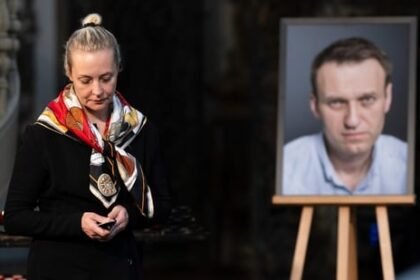Gucci Heiress Alexandra Zarini Awarded $115 Million in Landmark Sexual Abuse Case
In a significant legal victory, Alexandra Zarini, the heiress of the Gucci fashion empire, has been awarded $115 million in damages following a jury’s ruling against her former stepfather, Joseph Ruffalo. The jury found Ruffalo guilty of sexual abuse and willful infliction of mental distress, stemming from allegations that he had molested Zarini for years, beginning when she was just six years old. This case not only highlights the personal struggles of Zarini but also raises broader questions about accountability and the impact of abuse within influential families.
The Case Unfolds
The trial, held in Los Angeles Superior Court, lasted for approximately two hours and forty minutes. The jury, composed of six men and six women, delivered their verdict after careful consideration of the evidence presented. As the verdict was read, Zarini, who was seated beside her husband, was visibly emotional, shedding a tear in response to the jury’s decision. Dressed in a coordinated black outfit, she expressed her gratitude to the jury, describing the experience as “really hard, scary, and painful.”
Zarini’s journey to this moment has been fraught with challenges. In her own words, she turned to drugs as a coping mechanism for the trauma she endured, a common but tragic response to such experiences. The emotional toll of her past has been profound, and the legal victory represents not just a financial settlement but a form of validation for her suffering.
Background of the Case
The roots of this case can be traced back to 2007 when Patricia Gucci, Zarini’s mother, filed for divorce from Ruffalo after her daughter made shocking allegations against him. The divorce proceedings brought to light the disturbing nature of the accusations, which have now culminated in this landmark ruling. The case has not only affected Zarini and her immediate family but has also reverberated through the Gucci dynasty, a family known for its significant contributions to the fashion industry.
Who is Alexandra Zarini?
Born in 1985, Alexandra Gucci Zarini is not just a victim; she is also a prominent figure in her own right. As the great-granddaughter of Guccio Gucci and the granddaughter of Aldo Gucci, she carries the legacy of one of the most recognized luxury brands in the world. Zarini has channeled her experiences into advocacy, founding the Alexandra Gucci Children’s Foundation, which aims to support and empower children facing adversity. Additionally, she has launched a mission-driven luxury fashion brand, AGCF, further solidifying her commitment to social causes.
Zarini’s connection to the Gucci legacy is primarily through her mother, Patricia Gucci, who is the only child of Aldo Gucci and his wife. This lineage places Zarini in a unique position within the fashion world, where she is both a custodian of the family name and an advocate for change.
The Broader Implications
Zarini’s case is emblematic of a larger societal issue regarding the prevalence of sexual abuse and the challenges faced by survivors in seeking justice. The ruling against Ruffalo serves as a reminder that even those in positions of power and influence are not above the law. It also highlights the importance of creating safe spaces for victims to come forward and share their stories, a crucial step in breaking the cycle of abuse.
The Gucci family, known for its glamorous image and high-profile lifestyle, now faces the reality of a painful chapter in its history. The case has sparked discussions about the responsibilities of families with significant public profiles to address and confront issues of abuse within their ranks. As Zarini continues her journey of healing and advocacy, her story may inspire others to speak out and seek justice.
Conclusion
The $115 million awarded to Alexandra Zarini marks a pivotal moment not only in her life but also in the ongoing conversation about sexual abuse and accountability. As she moves forward, Zarini’s commitment to advocacy and her efforts to support children in need will likely remain at the forefront of her mission. This case serves as a powerful reminder of the resilience of survivors and the importance of holding perpetrators accountable, regardless of their status or influence. The legal victory is not just a personal triumph for Zarini; it is a beacon of hope for many who have faced similar struggles, encouraging them to seek justice and healing.










